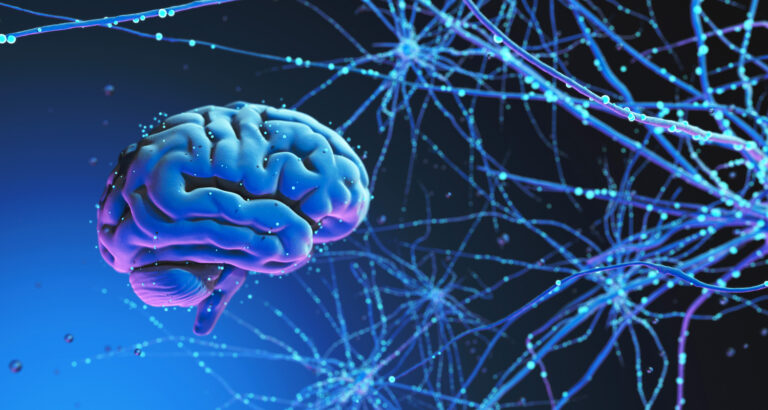
Today we welcome Lisa Mosconi, PhD, founder and director of the Women’s Brain Initiative and associate director of the Alzheimer’s Prevention Clinic at Weill Cornell Medical College in New York. She’s also an associate professor of neuroscience in neurology and radiology at Weill Cornell and an adjunct faculty member at New York University’s Department of Psychiatry.
Her new book, The XX Brain: The Groundbreaking Science Empowering Women to Maximize Cognitive Health and Prevent Alzheimer’s Disease highlights some of the fundamental differences between the brains of men and women, and how that impacts medical evaluation and treatment.
Listen to her interview on Bulletproof Radio: Women, Menopause and Alzheimer’s: XX Brain Connections With Lisa Mosconi, Ph.D. – #675
Unique Risks to Women’s Brain Health (excerpt)
by Dr. Lisa Mosconi
From The XX Brain: The Groundbreaking Science Empowering Women to Maximize Cognitive Health and Prevent Alzheimer’s Disease
Traumatic brain injury (TBI)

Even a “mild” TBI can also be disabling, causing:
- Headaches and migraines
- Emotional swings
- Disturbed sleep
- Slowed thoughts and word recall
- Impaired decision-making
- Reduction in the ability to plan and function effectively
While these symptoms may resolve in months, in some cases they can last for years.
For decades, TBI research suffered from the same gender bias noted in other fields. The majority of research on brain injury focused on male-dominated sports. Nearly all the brains donated to brain banks devoted to researching TBI were male, with the result that doctors treated concussions in men and women the same way.
But new research is disproving that notion. Not only do women tend to receive more concussions than men in similar sports, but they also experience more symptoms and then take longer to recover. Hormones, along with the physiology of women’s more delicate cranial bones and neck muscles, are possible reasons why women experience concussions differently. For example, female athletes tend to be at greater risk for concussion depending on which phase of their monthly cycle they are in. Recovery times also vary depending on hormonal levels.
Another group of women has been suffering from concussions, though largely in silence: the survivors of domestic violence. Data on this topic is sparse, in part because domestic violence is still largely stigmatized and underreported. While not discounting male survivors, direct experience of being subjected to domestic violence is five times greater among women. Clearly, this needs to change. This is not the book to offer strategies or solutions for domestic violence but to provide a different kind of advice. I want to emphasize that the support for victims needs to go beyond psychological and legal counseling (both very much necessary) to also include medical strategies to address any possible neurological consequences to the brain—chiefly, inflammation.
Women’s brains and inflammation

Except when it doesn’t. Sometimes, for various reasons, this inflammatory response can’t manage to shut itself off, and chronic inflammation ensues. Unlike the acute inflammation that follows a sudden infection or injury, the chronic kind produces a steady low-grade overfiring that when left unattended long term can contribute to the development of many diseases.
There is now consistent evidence that low-grade chronic inflammation of the brain is related to the development of cognitive decline and even Alzheimer’s, possibly by acting as a trigger. As luck would have it, this process seems to be worse in women. Research suggests that, in part again because of hormonal differences, microglial cells are built differently in each gender, potentially leading to a less efficient immune response in women. Not surprisingly, a staggering 75 percent of all Americans diagnosed with autoimmune diseases such as lupus and rheumatoid arthritis are women.
At the same time, low-grade inflammation is a behind-the-scenes player for many of the medical risk factors for dementia we’ve encountered so far, including heart disease, obesity, diabetes, and concussions, as well as hormonal imbalances—which are all pretty bad news for women’s brains. What to do?
For many people, keeping inflammation in check comes down to commonsense basics: avoid things that increase inflammation, and practice those things that are known to decrease it instead. These include:
- Eating well (with a focus on anti-inflammatory foods)
- Moving your body regularly
- Getting more rest
- Losing weight if necessary
- Quitting smoking
In addition, seek out treatment for any inflammation-inducing culprits such as toxin exposure, high cholesterol, harmful bacteria, and even gum disease.
Depression and women

Contrary to popular belief, clinical depression is not a “normal part of being a woman” nor is it a “female weakness.” Depression can occur in any woman, at any time, and for various reasons, such as developmental, reproductive, hormonal, and social factors, including stress from work, family responsibilities, financial issues, and of course the multitude of roles and expectations of women.
The result: Women are more than twice as likely to develop depression as men. Many women, even those who have never suffered from depression in their lives, experience depressive symptoms and emotional fragility during her transition to menopause. This is concerning because depression at midlife also happens to be a risk factor for Alzheimer’s. While this is true for both genders, the risk seems higher in women.
Importantly, depression is a largely treatable medical illness. From therapy to medication to healthy lifestyle changes, there are many different options available. Just as no two people are affected by depression in exactly the same way, neither is there a “one size fits all” treatment to cure it. By becoming as informed as possible, you can find the treatments that can help you overcome depression and feel happy and hopeful again.
Reprinted from The XX Brain: The Groundbreaking Science Empowering Women to Maximize Cognitive Health and Prevent Alzheimer’s Disease by arrangement with Avery, an imprint of Penguin Publishing Group, a division of Penguin Random House LLC. Copyright © 2020, Lisa Mosconi, PhD.










